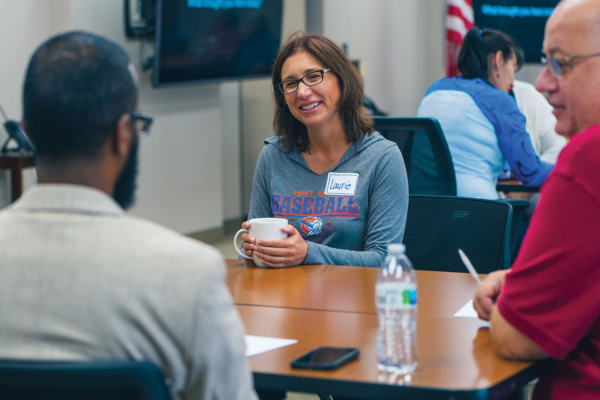The Power of 4
Type:
Article
Topics:
School Administrator Magazine
December 01, 2016
President's Corner
In Communities 4 Schools, we agree with Thomas Glass, a professor of educational leadership at the University of Memphis, who made that statement in the Education Writers Association’s report “Effective Superintendents, Effective School Boards.”
Lasting reform happens when there is a transformation within the surrounding community. We believe that transformation happens when the community owns the schools, accepts each child, supports the staff, answers key questions about expectations, holds itself accountable for living up to those answers, and provides a healthy atmosphere for the critical work and workers.
The 4 in the Communities 4 Schools name is more than a clever marketing tool for an education initiative. Rather, it represents four key components of the C4S community: people, posterity, commerce and governance.
The people component speaks to the family, the children and other individuals within the community and includes their values, mental models, principles, attitudes and behaviors.
Posterity includes the things we do to preserve the present and sustain ourselves through future generations. Here we look to efforts such as faith-based organizations, civic activities and public schools.
Commerce includes local businesses, employment and vocation-based endeavors.
Governance is broken out into internal and external components. The internal refers again to the people — the beliefs, values and principles of the families and individuals that guide their behavior in the shared space. For the external component, we look to the beliefs, values and principles that guide decisions of elected/appointed officials for the county, city and school board.
When these four pillars are healthy and working in unison around shared agreements, the community is strengthened and healthy. We believe that some communities are getting it right, and at C4S we find and share those communities’ stories. Research has its value, but for many, learning about and from the experiences of “regular folks” may be more convincing.
In Communities 4 Schools we believe that:
»Public education is indeed a common good;
»Public schools belong to the community; and
»The survival of public education requires responsible ownership, active support and advocacy provided by the community.
Paul Hill, acting dean of the Daniel J. Evans School of Public Affairs at the University of Washington, believes “successful reform efforts require long-term, committed support from outside the school system.” In his 2000 book, It Takes a City: Getting Serious about Urban School Reform, he writes, “Superintendents are good sources of day-to-day leadership, but given their short tenures, their efforts are not enough. Leadership must come from a longer lasting source and one that is both more deeply rooted in the community.”
In C4S, we believe that when school performance is not where the community wants it to be, the community should engage in a widespread conversation and answer key questions, such as those posed by Glass: What are the community’s educational priorities? What does the community want the school district to do? Are people willing to participate in the process?
The research is clear that focusing on improving the physical and mental health of the community can lead to the same for its schools.
Join me in the conversation on Twitter at @altonfraileyC4S or #tellyourstory.
Author
Advertisement
Advertisement
Advertisement
Advertisement



